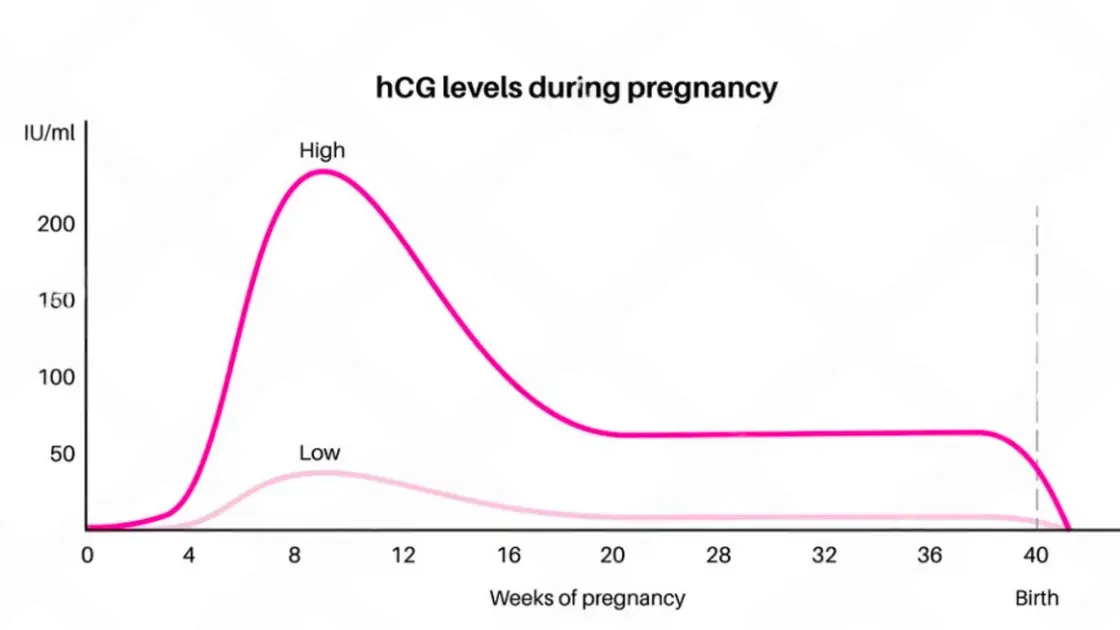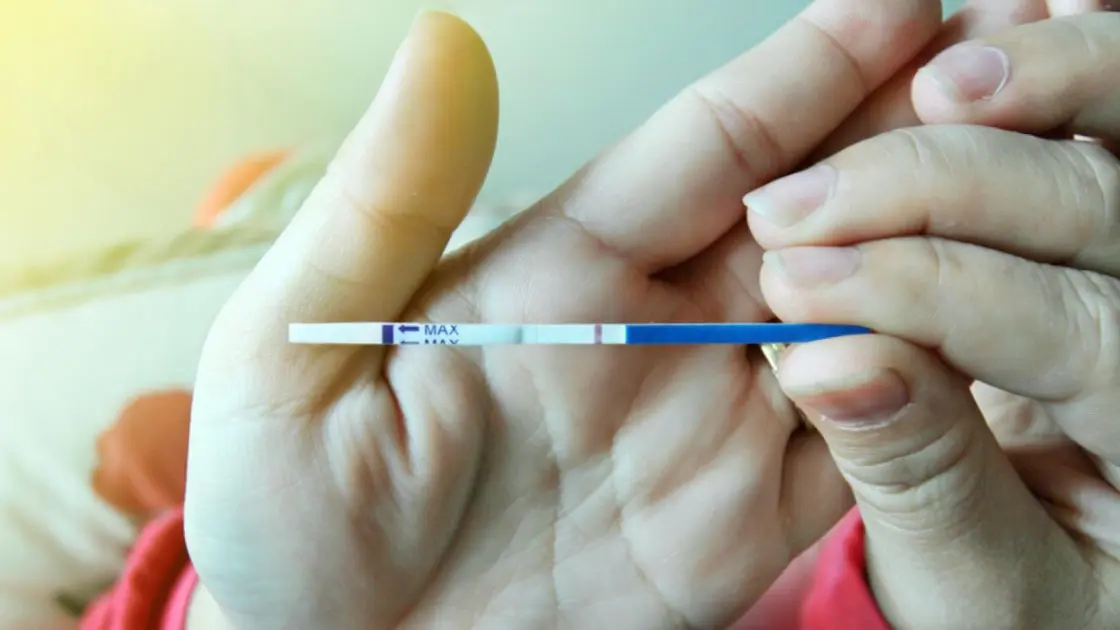HCG (Human Chorionic Gonadotropin) is one of the most profoundly useful hormones that can confirm a pregnancyand track its progress. Knowing how to use an HCG calculator effectively can make all the difference in understanding pregnancy and monitoring the health of both mother and baby. The HCG calculator provides a quick and easy way to estimate your HCG levels, which can be helpful to track the development of your pregnancy.
This comprehensive guide will walk you through the concept of HCG hormone levels, the differences between HCG levels for twins, and how HCG test strips work. We’ll also address HPT sensitivity, the B-HCG test price, and the importance of HCG qualitative tests. Whether you’re an expectant mother or planning a pregnancy, this information will give you a solid understanding of your pregnancy journey, and how you can use an HCG calculator to track your pregnancy progress.
Table of Contents
What Is an HCG Calculator?
An HCG calculator is a helpful tool that allows expectant mothers to track their HCG hormone levels throughout pregnancy. An HCG calculator is a convenient way to find out the HCG levels in the early stages of pregnancy. This calculator is based on your last menstrual period, or your ovulation date. HCG levels for twins can be considerably higher than with single. An HCG calculator enables you to easily track your HCG hormone levels any time during your pregnancy. By using an HCG calculator, you can easily monitor how your HCG hormone levels are progressing at each stage of pregnancy.
The HCG calculator can also help identify potential issues early, such as a missed or ectopic pregnancy. By monitoring HCG test strips or using a B-HCG test, you can get an accurate idea of your pregnancy status and overall health. The HCG calculator can also help you determine if your HCG levels are within the healthy normal range throughout your pregnancy,, so you can easily see if they’re within the normal range for a healthy pregnancy.
How HCG Works in Pregnancy

HCG hormone levels are critical early in pregnancy. HCG is made by the fertilized-egg after it implants into the uterus where production of HCG enables the corpus luteum to survive and produce necessary progesterone. This is one hormone required to keep progesterone production and growth of the pregnancy in check. The reason behind this is the body is pooling resources to aid the growth of two fetus – which needs a lot more energy and resources.
HCG Levels During Pregnancy
Here’s a general idea of what HCG levels typically look like during pregnancy, which can be tracked using an HCG calculator:
Week of Pregnancy | Normal HCG Range (mIU/mL) |
3 Weeks | 5 – 50 |
4 Weeks | 5 – 426 |
5 Weeks | 18 – 7,340 |
6 Weeks | 1,080 – 56,500 |
7-8 Weeks | 7,650 – 229,000 |
9-12 Weeks | 25,700 – 288,000 |
13-16 Weeks | 13,300 – 254,000 |
17-24 Weeks | 4,060 – 165,400 |
25-40 Weeks | 3,640 – 117,000 |
HCG and Pregnancy

The HCG hormone levels typically increase during the first trimester, with levels peaking around 8-10 weeks. The levels may drop afterward but remain steady throughout the pregnancy. After conception, HCG levels rise rapidly, doubling approximately every 48–72 h during early pregnancy. This rise in HCG is necessary for the growth of the fetus in the early stages of pregnancy. They can be seen on blood tests 7-10 days after fertilization, and are easier to pick up on a urine test 12-14 days after fertilization.
First Trimester Surge
The peak HCG levels usually occur around 8-10 weeks of pregnancy and then decline, although HCG levels can be very high, exceeding 200,000 mIU/mL in some pregnancies. This increase in hCG supports the pregnancy and boosts the body for the rest of gestation. It also helps in the maturation of maternal tissues, which fuel fetal growth. By using an HCG calculator, you can estimate when you should expect to see this surge in HCG levels and track its progress.
After the First Trimester
After peaking in the first trimester, HCG levels tend to plateau or slightly decrease around the 12-week mark and can remain steady or decrease slightly throughout the remainder of the pregnancy. Although HCG levels typically decrease after the first trimester, they should remain above detection until delivery, primarily in serum. Changes in the HCG level can be just fine (such as with twins), it may be a miscarriage (too low of levels), or it could be an ectopic pregnancy (too high levels). Either way, doctors prefer to keep tabs on these things, especially early on. Regular use of an HCG calculator can help fill you in on your pregnancy’s progress.
Role in Pregnancy Symptoms
Elevated HCG levels are often associated with pregnancy side effects, including nausea and vomiting (morning sickness). This is particularly frequent in the first trimester, when HCG concentrations are highest. Tracking these changes with an HCG calculator can help you understand the relationship between HCG levels and pregnancy symptoms.
Monitoring HCG During Pregnancy

While HCG is often tested in early pregnancy to confirm the pregnancy and its viability, some women may undergo HCG tests in later stages to monitor potential complications such as a miscarriage or ectopic pregnancy. If you are at higher risk of a problematic pregnancy, your doctor may use an HCG calculator to monitor your HCG levels to make sure a fetus is developing normally.
Understanding HCG Test Strips and Sensitivity
Many women use HCG strips or HCG test strips to detect pregnancy early. These strips measure the concentration of HCG in the urine and are typically used a few days after a missed period. However, the sensitivity of the test matters, and it’s important to know that an HCG calculator can help estimate when the HCG levels should be detectable.
HCG Test Strips Sensitivity
The HPT sensitivity refers to the test’s detection ability of low levels of HCG in the urine. Highly sensitive HCG strips can detect pregnancy earlier, even before the missed period.

A comparison table is given here to show the various HPT sensitivities and their detection capability:
Test Sensitivity (mIU/mL) | Days After Ovulation (DPO) | Detection Ability |
10 | 8-10 DPO | Detects early pregnancy |
20 | 10-12 DPO | Early to moderate pregnancy |
25 | 12-14 DPO | Moderate pregnancy |
50 | 14-16 DPO | Later-stage pregnancy |
How to Use HCG Test Strips
- Collect Urine in a Clean Container
Collect your urine sample in a dry and clean container. You will have the most accurate result if you use your first-morning urine, since it is the most concentrated with HCG.
- Dip the HCG Test Strip into the Urine for About 5 Seconds
Immerse the test strip in the urine for about 5 seconds, making sure the testing area is fully submerged but not beyond the maximum line. Avoid touching the absorbent area to prevent contamination.
- Wait for 3-5 Minutes for the Result to Appear
Place the strip on a flat, clean surface. Wait for 3-5 minutes for the results to appear. Do not wait longer than 5 minutes, as the result may become invalid after this time.
- Interpret the Results
- Positive: If two lines appear — one in the control area and one in the test area — the test is positive, indicating pregnancy. The test line may be faint, but it still counts as a positive result.
- Negative: If only one line appears in the control area, the test is negative. There should be no line in the test area.
HCG Levels and Twins

When carrying twins, HCG levels will be elevated in comparison to those of a regular pregnancy because two embryos are actually producing HCG at that time. Using an HCG calculator to determine HCG levels for twins can be useful for the doctors.
Early Pregnancy in Twin Pregnancies
In a twin pregnancy, HCG levels are typically elevated much earlier than in a singleton pregnancy. As early as 4 weeks, HCG levels for twins can be high enough to result in a positive pregnancy test. This occurs because both embryos are making HCG, so the levels in a serum HCG test will be higher.
Peak HCG Levels in Twin Pregnancies
The HCG hormone levels for twins usually peak between 8 to 10 weeks, just as they would in a singleton pregnancy. But, the peak HCG value for twins will be higher, irrespective of the type of twin, than that of a single baby. An HCG calculator can be utilized to track its increase during twin pregnancy.
Monitoring Twin Pregnancies
By tracking HCG levels for twins with an HCG calculator, doctors can gain insights into the progress of both embryos and assess whether they are developing at the expected rate. Higher-than-normal HCG levels can suggest a twin pregnancy, but an ultrasound is ultimately required to confirm this. In some cases, HCG levels may rise even higher if the twins are fraternal rather than identical.
HCG and Multiple Pregnancy Complications
While higher HCG levels for twins are typically normal, extremely high or low levels of HCG can be a sign of complications like molar pregnancy. HCG is to be monitored carefully to make sure both embryos are growing and developing well. If the HCG isn’t increasing as would be expected in twin or multiple pregnancy, it could be indicative of miscarriage, fetal distress, or a gestation-related problem that needs looking into.
Impact of Higher HCG Levels
Higher HCG levels in twin pregnancies can sometimes be associated with increased symptoms, such as more intense morning sickness or a larger-than-usual increase in pregnancy-related weight gain. The reason behind this is body is pooling more energy and resources to support twins growth.
Week of Pregnancy | Normal HCG Range for Twins (mIU/mL) |
4 Weeks | 100 – 800 |
5 Weeks | 200 – 2,000 |
6 Weeks | 5,000 – 50,000 |
7-8 Weeks | 20,000 – 200,000 |
9-12 Weeks | 80,000 – 250,000 |
B-HCG Test Price and Availability
One of the most accurate ways to monitor HCG hormone levels is through a B-HCG test. This blood test measures the exact amount of HCG in your system, providing precise data about your pregnancy status.
- B-HCG Test Price: The cost of the B-HCG test can vary depending on where you live and your healthcare provider. On average, it ranges from $25 to $50. Using an HCG calculator can help you estimate when to get this test based on your pregnancy stage.
FAQ Section
- How can an HCG calculator help during pregnancy?
An HCG calculator helps you track your HCG hormone levels throughout pregnancy. It can estimate your pregnancy week based on your HCG count and determine if you might be having twins.
- What is the difference between HCG levels for a single pregnancy and twins?
The HCG hormone levels for twins are typically higher than those for a single pregnancy. HCG levels for twins will rise more rapidly, and the overall HCG count for twins will be higher compared to a single baby.
- Can I trust the results from HCG strips?
HCG test strips are trustworthy if employed properly, with a sensitivity that fluctuates. For early testing, use those super sensitive HCG pregnancy test strips, which detect even tiny amount of HCG hormone.
- How accurate are B-HCG tests?
B-HCG tests are highly accurate. They give you the exact amount of HCG in your blood, so they are accurate. The price of a B-HCG test, however, is not fixed.
- When should I take an HCG test for accurate results?
For the most accurate results, do not take an HCG test until the first day of or after your missed period. False negatives do occur in early testing (especially with less sensitive HPT).
- What is the B-HCG test price?
The B-HCG test price typically ranges between $25 and $50. But that can depend on where you are and the clinic providing the test.
- What does the HCG qualitative test indicate?
The HCG qualitative test validates that you are pregnant. It gives you a straightforward “yes” or “no” answer depending on if there is HCG in the blood.
Conclusion
Monitoring your HCG hormone levels is important in a twin pregnancy, particularly when you have a history of multiple pregnancies. Keep up-to-date on your pregnancy using an HCG calculator, HCG test strips, and HPT sensitivity. Be sure to take a B-HCG test if you desire a more accurate measurement, and consult your healthcare provider with any concerns. Whether you are going through HCG levels for twins or just want to double-check the good news (which you are already too sure about), the right kind of tools, like an HCG calculator, can make all the difference in your journey of motherhood.
Explore more on Pregnancy Must –









